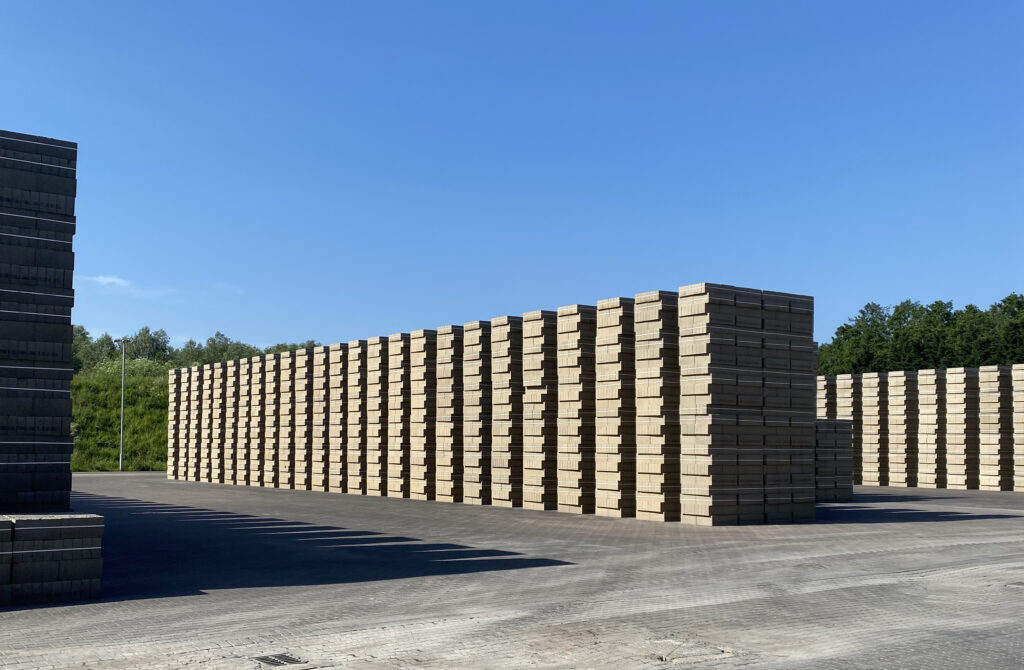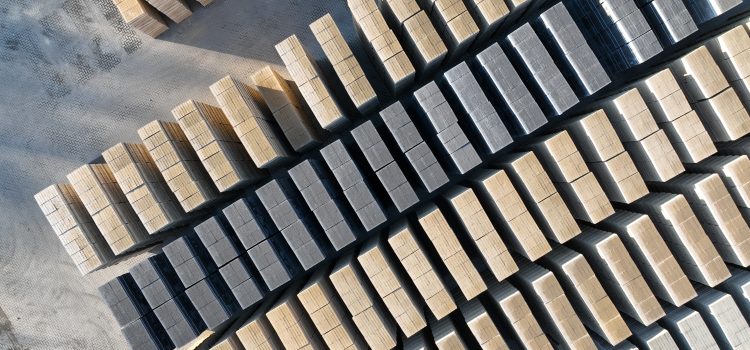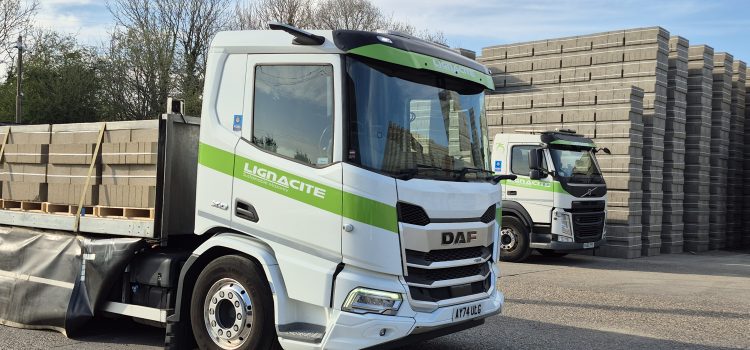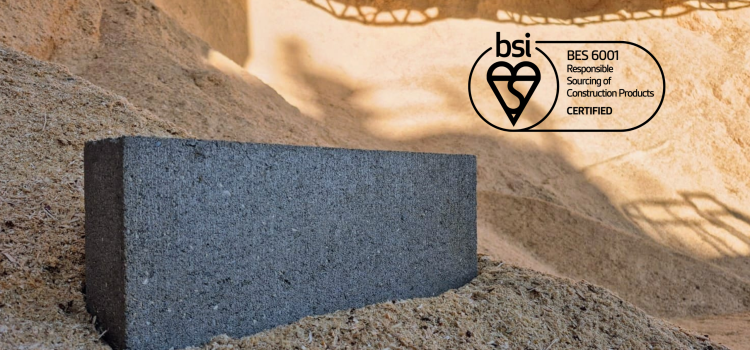Articles
Everything you need to know about concrete hollow blocks: their uses, properties, lifespan and advantages

Posted by Nick Franks
Find out how you can use hollow concrete blocks in your next project by reading our handy guide.
Concrete blocks are a strong and versatile construction material, suitable for many building applications. But what about hollow concrete blocks?
Hollow concrete blocks are used in all kinds of building applications. Unlike solid blocks, they have holes or ‘voids’ within them. Depending on their use, these holes can be left empty or filled with cement or reinforcing rods for additional strength.
To help you decide if hollow concrete blocks could be the right fit for your next development, we’ve put together this detailed guide.
What are the advantages of hollow concrete blocks?
Concrete hollow blocks are highly durable
Concrete blocks are, as a rule, highly durable. This is because of their compressive strength, which makes them excellent for load-bearing.
Because of their empty voids, hollow concrete blocks are not quite as strong as their solid counterparts. However, one of the advantages of concrete hollow blocks is that their voids can then be filled with cement or reinforcing bars. This makes them very strong and ideal for use in sturdy structures such as skyscrapers.
Concrete hollow blocks are also highly resistant to fire. Our Lignacrete Hollow blocks are non-combustible and make no contribution to fire, which has earned them a Class A1 rating.
Our Lignacrete Hollow product is frost-resistant too. This makes it ideal for use above and below ground.
Finally, the durability of hollow concrete blocks is reinforced by the fact that they need little to no maintenance.
Concrete hollow blocks have good insulation properties
Concrete hollow blocks have excellent insulation properties, both thermal and acoustic. If the holes are left unfilled, the air in the blocks helps to keep a building warm in winter and cool in the summer months.
These holes also help to insulate the building from loud sounds, reducing noise pollution inside.
They’re lighter than regular concrete blocks
Due to their voids, concrete hollow blocks are much lighter than solid blocks. This makes them less energy-intensive to transport, as well as easier to move when on site.
Because of their lighter weight, hollow blocks can be useful for parts of a building that have weight restrictions.
Hollow concrete blocks vs solid concrete blocks
What is the difference between hollow and solid concrete blocks?
The main difference between hollow concrete blocks and solid blocks is that the former has hollows or ‘voids’ inside the block. These usually take up more than one-quarter to one-half of the block’s cross-sectional area.
These holes make hollow concrete blocks lighter. They also provide a useful space to run pipes or wires through in a neat and concealed way.
Hollow concrete blocks can be used in situations where high strength is needed too. The hollows within them can be reinforced with cement or rebar, which adds greater stability to the block. This means that they could be a good option for large structures that need a high-strength wall.
Are hollow concrete blocks better than solid concrete blocks?
This depends on what you need to use the concrete block for.
If part of a structure has strict weight limits or you want to create a partition wall, using hollow blocks may be a good option because they are lighter. They can also be useful for interior walls because their hollows allow you to run wiring and piping through them. This makes for a neater alternative to attaching these things to the exterior of a solid concrete block.
Hollow blocks may also be useful if thermal insulation is a key factor in your build, as the air contained within their hollows can help to keep a construction warm in winter and cool in summer.
However, if durability is a concern, you may want to opt for a solid block. Hollow blocks are naturally less robust than solid blocks due to their empty spaces. To make them extra strong, you would need to fill their hollows with cement or rebar to reinforce them.
Are concrete hollow blocks eco-friendly?
Concrete hollow blocks need fewer materials, have shorter curing times and are lighter to transport than solid concrete blocks. These factors all have a favourable impact on their eco-friendliness.
As excellent thermal insulators, they can also help a finished structure to stay warm in winter and cool in summer. This reduces inhabitants’ reliance on energy-intensive artificial heating and cooling.
However, the exact impact of concrete hollow blocks will still be heavily influenced by their manufacturing and transportation methods.
Concrete hollow blocks, just like all concrete products, need natural resources for production. But it is becoming increasingly possible to use recycled materials as part of their composition. For instance, furnace ash is a waste material that we can incorporate into our blocks to reduce our reliance on raw materials.
Careful sourcing of these materials can also increase the eco-friendliness of hollow concrete blocks. For instance, at Lignacite we follow the requirements of BES 6001. This means that we source our materials responsibly.
To make concrete hollow blocks, a great deal of energy is needed too. However, this can be mitigated by highly efficient manufacturing processes as well as the use of renewable energy.
For example, at our new Brandon facility, we have fitted highly efficient motors and insulated curing chambers. Some of our power is supplied via solar panels on the roof too. We have also switched all of the plant vehicles on both of our sites to HVO fuel (hydrotreated vegetable oil), which has 90% of the carbon emissions of standard white diesel.
To reduce the carbon footprint of transporting hollow concrete blocks, careful route planning is also employed. This increases the volume that can be delivered while reducing the amount of miles travelled. At Lignacite, we are also investigating the use of alternative fuels for our delivery fleet to make our products more eco-friendly.
Discover more about our sustainable action here.
Are hollow concrete blocks good insulators?
Yes, hollow concrete blocks are very good insulators.
The hollow spaces within these concrete blocks reduce the amount of solid material through which heat can travel. This therefore helps to keep a building warm in the cold months and cool when summer reigns.
The hollows make hollow concrete blocks good sound insulators too. This reduces the transference of sound within buildings and can help to block out exterior noises.
Are concrete hollow blocks waterproof?
In general, concrete blocks are porous. This means that they can absorb water. If used for external walls, the water they absorb could go on to freeze and then expand during cold weather. This weakens the concrete block.
Dense blocks, which have fewer holes to allow water through, tend to be more water resistant. Hollow blocks are therefore less waterproof.
That said, one of the densest concrete block types, Lignacrete, gives even the hollow blocks a low level of moisture movement.
To protect concrete hollow units from water, there are plenty of sealants available on the market. You can refer to our Design Guides to see what we recommend for construction.
What is the lifespan of a hollow concrete block?
Hollow concrete blocks are very durable and need little to no maintenance. You can therefore expect a lifespan of 100 or more years for hollow concrete units.
What is the load-bearing capacity of a hollow concrete block?
Our Lignacrete Hollow blocks are part of our strongest range. These blocks come with a load-bearing capacity of 7.3N/mm2 or 10.4N/mm2.
You can find out more by taking a look at our dedicated Lignacrete Hollow product page.
What is the thickness range of concrete hollow blocks?
Our Lignacrete Hollow blocks come in two thicknesses: 140mm or 215mm.
Find out more about these blocks on our product page.
What size are hollow concrete blocks?
Hollow concrete units can come in a range of sizes.
Here at Lignacite, our Lignacrete Hollow blocks have a face size of 440mm x 215mm.
You can find out more about our hollow concrete blocks here.
Find out more about our hollow concrete blocks
To discover if hollow concrete blocks could be right for your next project, take a look at our Product Selector tool to choose your building supplies or give us a call on 01842 778485.






















